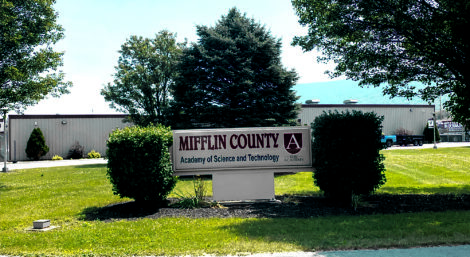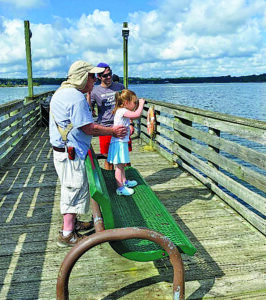Valley West Health disputes Union’s claims
Planned strike deemed ‘unlawful’
LEWISTOWN — Valley West Health Facilities is pushing back against accusations from unionized nursing home workers who plan to strike next week, calling the action unlawful and accusing the Service Employees International Union (SEIU) of violating a binding no-strike agreement.
In a series of letters sent to SEIU leaders and shared with The Lewistown Sentinel, Valley West’s attorneys argue the company has bargained in good faith and say the union’s threat of a three-day work stoppage beginning Oct. 14 is “reckless” and “in breach of contract.”
Attorney David F. Jasinski, who represents Valley West, said the agreement signed last year — after the company purchased 10 Pennsylvania nursing homes from the bankrupt Guardian Healthcare — specifically included a no-strike clause to ensure stability during the transition.
“Even the threat of a strike would create irreparable harm to these operations,” Jasinski wrote in an Oct. 6 letter to SEIU Healthcare Pennsylvania President Matt Yarnell. “Each employer fully intends to take any and all legal action and sue SEIU to restrain and prevent this illegal action.”
The letter, addressed to all 10 facilities — including William Penn Healthcare and Rehabilitation Center in Lewistown — warned that the company would seek damages if employees walked out, citing breach of the collective bargaining agreement’s “No Strike — No Lockout” provision.
In its correspondence, Valley West’s counsel said the company has “repeatedly offered to meet” with SEIU to discuss wages following the expiration of a limited reopener clause on Aug. 31, but the union “chose instead to announce an unlawful work stoppage.” According to the Oct. 1 letter to SEIU Vice President Patty Ludwikowski, Valley West offered Oct. 16 as a bargaining date because earlier requests conflicted with the Jewish High Holy Days.
“The Union’s actions are reckless and fail to protect your members and our employees,” Jasinski wrote. “It is apparent that the Union is more interested in engaging in political gamesmanship to the detriment of these facilities and their employees than working for the survival of these facilities.”
In a second Oct. 1 letter, Jasinski accused union organizers of “strong-armed tactics” to pressure members into supporting what the company called an “unlawful work stoppage.” He said the union’s proposal for wage increases–some between 20% and 25%–was unrealistic and constituted “bad-faith bargaining,” particularly since the facilities were “on the verge of bankruptcy” when Valley West assumed control.
In a written statement responding to The Sentinel’s Oct. 7 article on the union’s strike notice, Valley West said that its purchase of the homes in 2024 “prevented the displacement of residents and the unemployment of hundreds of caregivers.” The company emphasized that all employees were retained, all vendors had been paid, and state surveys “now show strong results.”
“Supplies, staffing, and resident care have all been stabilized since Valley West took over,” the statement read. “Allegations of cutbacks are categorically false and slanderous.” The company said it has restored financial stability, preserved jobs and raised performance, claiming its homes now average 4.5 stars on Google reviews.
Valley West also disputed the union’s claim that management canceled bargaining sessions. The company said SEIU’s strike notice was issued “one hour into Yom Kippur,” despite an offer to meet right after the holidays. “We have documented attempts to meet in good faith,” Valley West said, citing attached legal correspondence.
The dispute comes amid continued strain in Pennsylvania’s nursing home sector, where operators face rising costs and uncertainty over Medicaid reimbursements. Valley West said promised state funding increases never materialized and warned that proposed reductions under a pending measure referred to internally as the “Big Beautiful Bill” could worsen conditions statewide.
In this climate, the company said, SEIU’s push for a 20% to 25% wage increase “is fiscally reckless.”
In its Oct. 6 notice to SEIU, Valley West’s attorneys said the company is prepared to pursue “any legal remedies” to stop what it considers an illegal strike and to recover damages. The firm also said it will establish an anonymous hotline for employees to report intimidation or threats related to union organizing.
“To protect staff, Valley West is creating an anonymous tip line where employees can safely report intimidation,” the company’s statement said, adding that threats such as “we know where you live,” or “we know what car you drive,” have been reported to management.
Valley West officials have called the strike “unlawful” and “reckless.” Union leaders dispute that characterization.
“It’s disingenuous and disrespectful,” SEIU Healthcare Pennsylvania President Matt Yarnell said. “We’ve been at this since early summer trying to have a bargaining relationship with this employer, and they have literally refused to do so. So now, when workers have decided they’re gonna have to take action to get somebody’s attention, they’re trying to say the workers are being reckless. You know what’s reckless? Not actually getting in it and bargaining in good faith with your workers.”
Yarnell said the caregivers “work incredibly hard taking care of the most vulnerable people in our community, and they deserve to be respected.”
The company said it intends to move forward with its scheduled Oct. 16 bargaining session and “remains open to constructive dialogue.” Officials said the focus remains on “protecting residents, strengthening jobs, and ensuring that communities never again face the trauma of shuttered facilities.”
SEIU representatives have maintained that the company’s actions constitute bad-faith bargaining and that workers have the right to strike over unfair labor practices. The union has not yet indicated whether it will move forward with the strike following Valley West’s legal threat.
If the planned work stoppage moves forward, it would mark one of the largest nursing home labor actions in Pennsylvania this year–testing both the limits of collective bargaining agreements and the fragile stability of long-term care facilities still recovering from years of financial turmoil.



